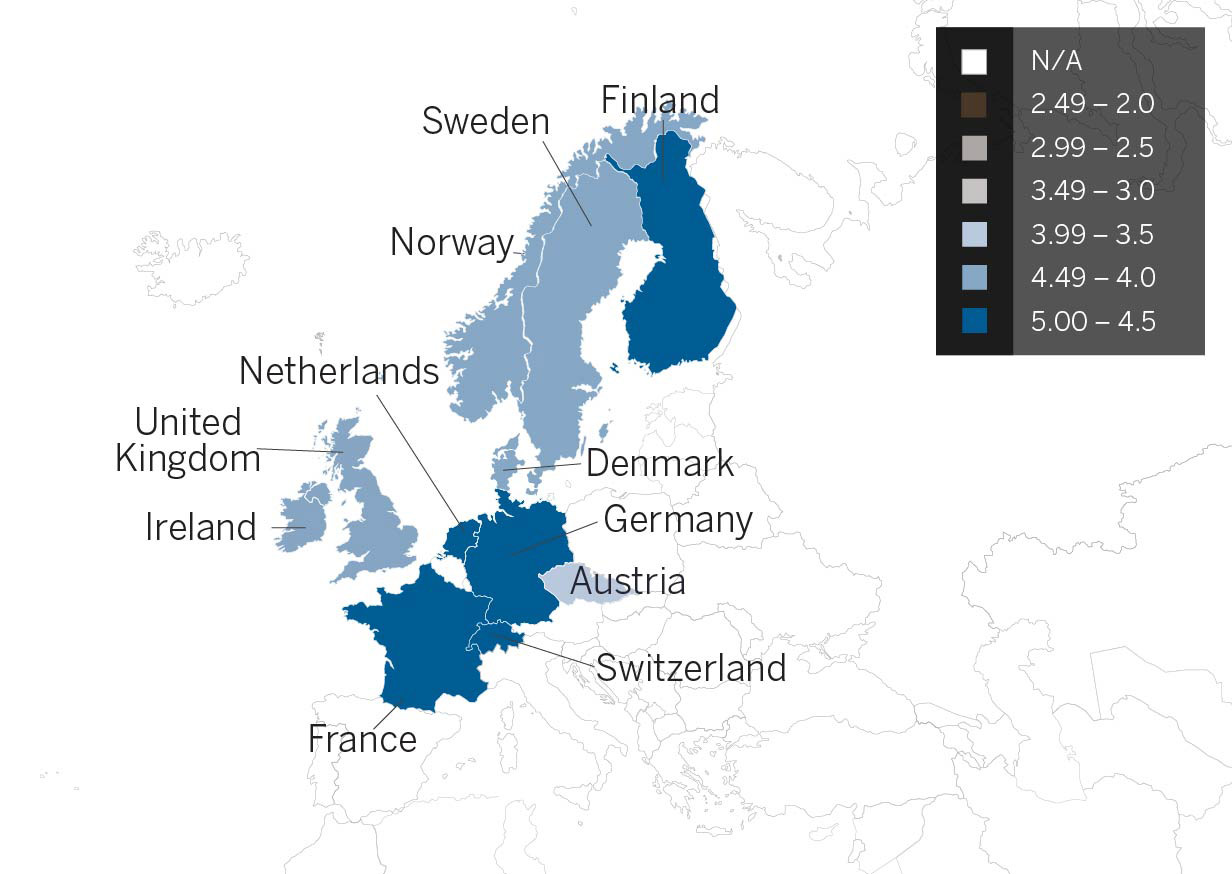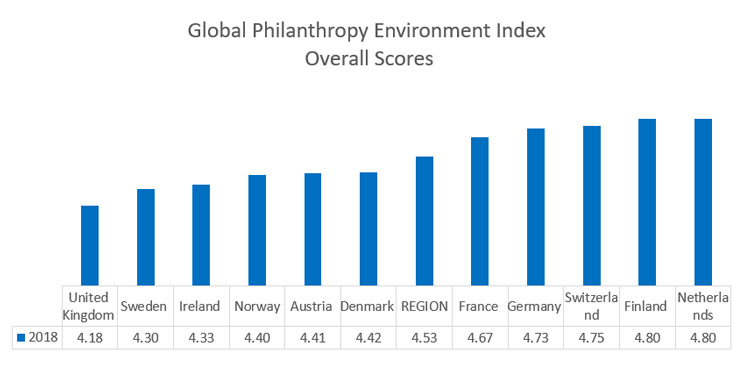According to the most recent estimates, the most represented religion is Christianity in various denominations: Roman Catholic, Lutheran, Evangelical, and Anglican. Christianity provides a long-standing tradition of charity in the region and both the Roman Catholic and Protestant Churches offer social services to help those in need and encourage the tradition of philanthropic giving.
Despite this, the region, as the rest of Europe, is projected to see a decline in its Christian population mainly because of the aging of the population. Simultaneously, the religiously unaffiliated populations are expected to grow (Pew Research Center, 2015).
Educational attainment in Northern and Western Europe is relatively high in comparison with other OECD countries. On average, 47.8 percent of 25-34 year-olds completed tertiary education in Northern European countries, including Ireland and the United Kingdom, where this level was 52.0 percent in 2016.
For Northern Europe, Finland had the lowest level with 41.1 percent. Western European countries have slightly lower levels of educational attainment in the same age group, with an average of 41.64 percent of 25-34 year-olds having completed tertiary education; however, at a national level numbers differ significantly. While the level of tertiary education attainment in 2016 in Germany was only 30.5 percent, in Switzerland it was 48.8 percent (OECD, 2017a).
In summary, the Northern and Western Europe regions are characterized by high levels of educational attainment, which may positively influence the development of the philanthropic sector.
The countries in Northern and Western Europe are representative democracies and according to the Freedom in the World report published by Freedom House in 2017, all of them are among the top 30 countries in terms of political rights and civil liberties; Finland, Norway, and Sweden scoring the highest all around the world. Denmark, the Netherlands, Norway, Sweden, and the United Kingdom are constitutional monarchies; monarchs are not allowed to use their political power, but their role in promoting and enhancing philanthropy is significant. Austria, Finland, France, Germany, Ireland, and Switzerland have relatively long histories of republics as a form of governance.
The majority of the countries in the region are democratic welfare states, where social services and benefits are broadly provided by the state. According to Eurostat (2017a), the European Union member states spent between 9.6 (Ireland) and 26.5 (Finland) percent of their GDP on social protection. In social democratic welfare states like Denmark, Finland, the Netherlands, Norway, and Sweden, the government provides social services based on the principle of universalism, while in Christian democratic welfare states, like Austria, France, and Germany, social service provision is based on the principle of subsidiarity.
Despite the fact that Switzerland is characterized as a liberal state that only provides basic needs through means-tested basis (Esping-Andersen 1990, cited by Anheier 2014), the Swiss government spent 13.5 percent of its total GDP on social protection (Eurostat, 2017a).
Despite the advanced level of welfare states, a socio-economic divide has been increasing in the region mainly because of the 2008 economic crisis. While the United Kingdom has the highest levels of income inequality (0.36), Denmark (0.256) and Norway (0.257) are among the most equal European economies in terms of income distribution and poverty (OECD, 2017b).
Neither the level of income nor the level of household disposable income has reached their pre-crisis levels, nor has inequality been reduced. As the Understanding the Socio-economic Divide in Europe report published by OECD (2017c, p. 5) highlights, “inequality can lower social trust in institutions and fuel political and social instability” in the region, such as the rise of antiestablishment parties in Austria, France, and Germany, or the 2016 Brexit vote in the United Kingdom.



